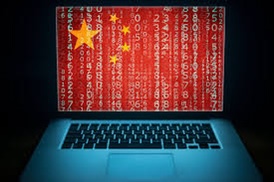– – New York Times-Matt Pottinger, etc.:

Data is the oil of the 21st century, the indispensable resource that will fuel artificial-intelligence algorithms, economic strength and national power. The wellspring of this data is all of us: our health records and genetic sequences, our online habits, the supply chain flows of our businesses, the terabytes of imagery guzzled by phones, drones and autonomous cars. The competition for global influence in the 21st century will require protecting and harnessing this data to achieve commercial, technological and military advantages. So far, China is winning, and the West is barely even engaged. Through a latticework of recent laws and regulations, Mr. Xi has been hard at work making the Chinese Communist Party the world’s most powerful data broker. How does Beijing do that? By walling Chinese data off from the world, exerting new extraterritorial power over global data flows and putting foreign companies operating in China in a legal bind — all while absorbing other countries’ data by means licit and illicit…Washington’s blind spot to the centrality of big data in Beijing’s ambitions and to the ways our own data are being exploited in service of those ambitions is perplexing at a time when American politicians are growing more concerned about the collection and potential exploitation of big data by U.S. tech giants. It is further perplexing because Americans in bipartisan fashion also are wising up to the ways that Beijing exploits and weaponizes other U.S. resources, like our capital markets. That’s evident in how Washington is finally — if fitfully — beginning to address the self-destructive flow of U.S. dollars into China’s military and global surveillance apparatus. While these sorts of measures still need to be scaled up dramatically, at least policymakers now have some tools to curb Beijing’s easy access to U.S. capital. Not so when it comes to data, where Beijing believes that it has a free hand and that the West is too distracted or feckless to respond meaningfully… Beijing has been building the framework to ensure that mass accumulations of data serve the Chinese Communist Party’s strategic interests. A series of laws implemented in 2017 asserted the party’s power to gain access to private data on Chinese networks, whether in China or associated with Chinese firms such as Huawei overseas. Now Beijing has quietly enacted a new set of laws — first the Data Security Law in September, followed in November by the Personal Information Protection Law — that go even further by demanding not just access to private data but also effective control over it. This has a huge impact on foreign firms operating in China. Not only must their Chinese data stay in China and be accessible by the state, but Beijing now demands control over whether they can send it to their own headquarters; to a corporate lab in, say, California; or to a foreign government that has made a law enforcement or regulatory request. Beijing’s new laws may make it criminal to comply with foreign sanctions against China that involve data — like shutting off banking or cloud services to a Chinese entity linked to human rights atrocities. In these cases, foreign firms can comply with U.S. law, or they can comply with Chinese law, but not both… Beijing’s recent actions complement its longstanding efforts to buy, steal and otherwise acquire data from foreign sources worldwide. Beijing hacks multinational corporate databases. It runs “talent recruitment” programs at foreign universities and firms. It buys foreign companies, such as an Italian maker of military drones. It funds its own data-driven start-ups in open foreign markets like Silicon Valley. The approach is nakedly nonreciprocal. It relies on access to foreign data while denying foreigners access to Chinese data — and appears to assume that foreign governments won’t respond. The United States, after all, has no comprehensive federal approach to data governance, while the European Union’s General Data Protection Regulation is focused mostly on consumer privacy… And to date, U.S. policy remedies are idle and insufficient… But banking on Chinese authoritarian overreach to preserve America’s edge is no strategy. A smarter approach would begin domestically, with actual (and robust) implementation of the Biden administration’s June executive order. This would entail blocking or unwinding arrangements by which large volumes of sensitive U.S. data flow to China, whether through medical records, cellphone apps or other channels — all of which are basically unregulated right now. Democratic allies must also work together to promote data sharing among themselves while limiting flows to China. A blueprint was introduced by former Prime Minister Shinzo Abe of Japan. This idea, called Data Free Flow With Trust, ought to become allied policy. For upward of a generation, Beijing has been coldly effective in designing a strategy of global data mercantilism: data hoarding for me, data relinquishing for thee.”
Opinion | China Is Winning the Big Data War, Thanks to Xi – The New York Times (nytimes.com)

